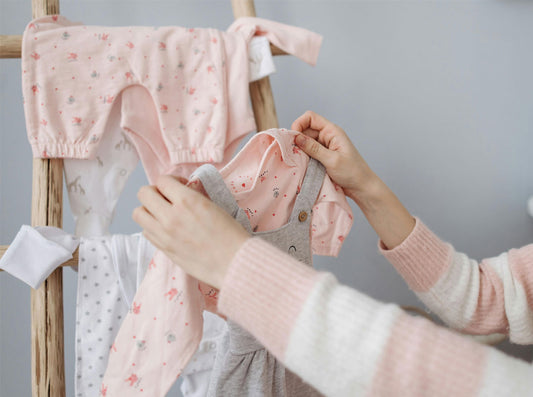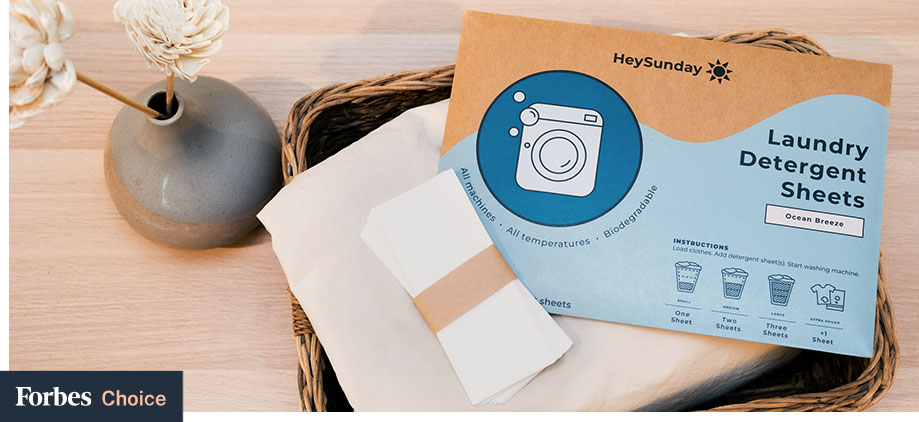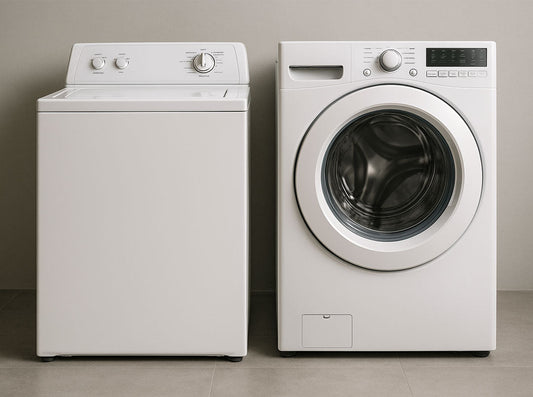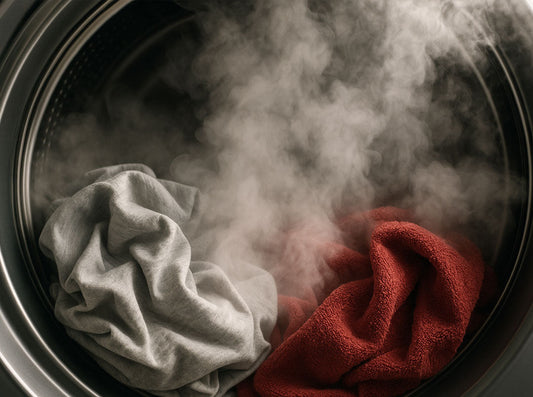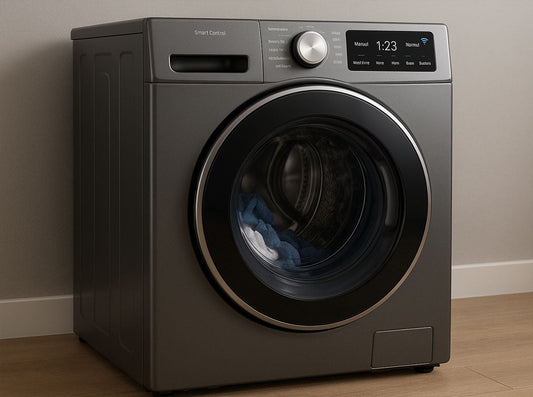A Gentle Start
If you’re a new parent, laundry might already feel like a full-time job. Between spit-up stains, milk spills, and endless outfit changes, your washing machine rarely gets a break. But there’s another layer to it too: the worry about whether detergents, fabric treatments, or even water temperature might irritate your baby’s delicate skin.
That’s why this guide exists. Together, we’ll cover detergents, stain treatments, wash cycles, drying tips, and the most common mistakes to avoid. By the end, you’ll feel confident about keeping every onesie, bib, and blanket both clean and gentle on your baby’s skin.
What Makes Baby Clothes Different
Baby clothes need more care than adult laundry. The reason is simple: newborn skin is thinner and more sensitive, which means it reacts more intensely to laundry residue. Even trace amounts of detergent, dyes, or perfumes can cause irritation.
When you’re starting your laundry routine, it helps to know what to avoid:
-
Fragrances and dyes. These are common in traditional detergents, but they can cling to fabric and bother sensitive skin.
-
Optical brighteners. Often added to make whites look whiter, these chemicals don’t wash out easily and may cause rashes.
-
Fabric softeners and scent boosters. While they leave clothes smelling “fresh,” they also coat fabric with residue that can irritate delicate skin.
Even brand-new clothes can contain finishing agents from the manufacturing process. A quick pre-wash before the first wear clears away those hidden irritants and ensures your baby’s wardrobe starts clean.
Choosing the Right Laundry Detergent for Baby Clothes
The detergent you choose makes the biggest difference in protecting your baby’s skin. Look for simple, fragrance-free, and dye-free formulas that are dermatologist-tested.
One option many parents love is HeySunday Laundry Detergent Sheets. They’re pre-measured, plant-based, and packaged without plastic. Because they dissolve completely in cold or hot water, you don’t have to worry about sticky residue left behind in fabrics.
No matter which laundry detergent you choose to use, be sure to avoid:
- Heavy synthetic fragrances
- Chlorine bleach
- Harsh chemical additives.
These do little for cleanliness but a lot for irritation.
Preparing Your Baby’s Clothes Before Washing
Before you toss everything in the machine, a little preparation helps protect both the fabrics and your baby’s skin.
Start by washing all new items. Clothes, blankets, and even stuffed toys can carry residues from the factory, so a first wash makes them safe for cuddling.
Next, sort the laundry. You’ll want to separate light and dark colors, but also divide heavily soiled items from lightly worn ones. This prevents dirt from transferring between loads.
Finally, check each label. Those little care symbols tell you whether a fabric can handle warm water, if it needs a delicate cycle, or if it should be air-dried.
Pre-Treating Stains
When it comes to stains, gentle is the way to go.
Rinse spit-up or food stains in cold water as soon as possible. For set-in spots, dissolve part of a detergent sheet in cool water, soak the fabric for 15–30 minutes, and then wash. Skip harsh bleach-based spot cleaners, which can weaken fabrics and irritate skin.
How to Wash Baby Clothes Step-by-Step
Once you’ve sorted and prepped, you’re ready for the main event: the wash cycle.
Here’s a system that works well for most families:
-
Water temperature. Cold or warm works for everyday baby laundry. Save hot water for cloth diapers or illness-related loads.
-
Cycle setting. Choose delicate or gentle for smaller items like onesies and knits, and regular for sturdier fabrics like cotton sheets.
-
Detergent amount. More detergent doesn’t mean cleaner clothes. In fact, it leaves more residue. Detergent sheets help here because they’re pre-measured and dissolve fully.
-
Extra rinse. If your washer offers it, an extra rinse ensures fabrics feel soft and free from leftover soap.
-
Load size. Give clothes room to move. A loosely filled washer means stains and detergent rinse away more effectively.
One last note: washing in cold water when possible isn’t just better for fabrics, it’s better for the planet. Nearly 90% of the energy used in a typical cycle comes from heating water. That means cold washes save energy and while cleaning your baby’s clothes at the same time.
Drying and Post-Wash Care
Drying is where clothes can lose their softness if you’re not careful.
Air drying is the gentlest method and helps clothes keep their shape. If you need the speed of a dryer, stick to low or medium heat to avoid shrinking and wear.
For static control, avoid heavily scented dryer sheets and fabric softeners, which coat fabric in chemicals. Instead, try HeySunday Dryer Sheets. They’re fragrance-free, non-toxic, and safe for sensitive skin.
Before putting clothes away, do a quick check. Make sure there are no loose snaps, buttons, or threads that could irritate or scratch.
Special Cases and Fabric-Specific Considerations
Some baby items need special attention. Cloth diapers, for example, require a hot wash and no softeners, since softeners reduce absorbency.
Delicate fabrics like wool or hand-knit gifts should be washed by hand in cool water and laid flat to dry.
Blankets, swaddles, and bibs that spend a lot of time near your baby’s mouth should be washed more frequently than outer layers.
Common Baby Laundry Mistakes To Avoid
Many laundry frustrations come from a few easy-to-avoid habits.
- Using too much detergent is the biggest one. It leaves residue that irritates skin.
- Another is overloading the washer so clothes can’t rinse properly.
- Parents also sometimes mix heavily soiled items with lightly worn ones, which can spread unwanted germs, dirt, and stains.
Other pitfalls include skipping the pre-wash on new clothes, overdrying on high heat, or using perfumed boosters. By steering clear of these, you’ll keep fabrics softer and gentler for longer.
Eco, Budget, and Baby-Friendly Tips
Laundry doesn’t just affect your baby’s skin, it also affects your budget and the planet. Here are a few ways to keep everything in balance:
-
Choose plant-based detergent sheets. They save space, skip the plastic jug, and are kinder to the environment.
-
Wash in cold water when possible. This saves energy and prevents fabric wear.
-
Air dry when practical. A drying rack or clothesline helps fabrics last longer.
- Use simple stain care. Baking soda or a mild soak works well for most baby stains without the need for harsh cleaners.
Small changes like these reduce both environmental impact and family costs without adding extra work to your routine.
When to Call a Pro
Sometimes laundry adjustments aren’t enough. If your baby develops persistent rashes or irritation, it’s best to check in with your pediatrician or a dermatologist. Laundry plays a role in comfort, but ongoing skin concerns need medical advice.
Gentle, Simple, Done
Washing baby clothes doesn’t need to be complicated. With a mild detergent, the right wash cycle, and a few eco-friendly habits, you’ll keep your baby’s wardrobe clean, soft, and safe against irritation.
And if you want a stress-free starting point, try HeySunday Laundry Detergent Sheets. They’re pre-measured, plant-based, and gentle on sensitive skin, making them the simplest way to care for your baby’s clothes one load at a time.
Frequently Asked Questions
Can I wash baby clothes with the rest of the family’s laundry?
Yes, as long as you use a gentle, fragrance-free detergent and skip fabric softeners.
How often should I wash newborn clothes?
Anything that touches skin or mouths daily, like onesies or swaddles, should be washed after each use. Outerwear can go longer.
Is hot water ever needed?
Yes, for cloth diapers or laundry after illness. Otherwise, cold or warm water is best.
Can I use dryer sheets?
Yes, but pick unscented, non-toxic ones like HeySunday Dryer Sheets to avoid chemical residue.
Are natural detergents always safe?
Not always. Look for fragrance-free, dye-free, and dermatologist-tested options. HeySunday Laundry Detergent Sheets meet those criteria and arrive in plastic-free packaging.
